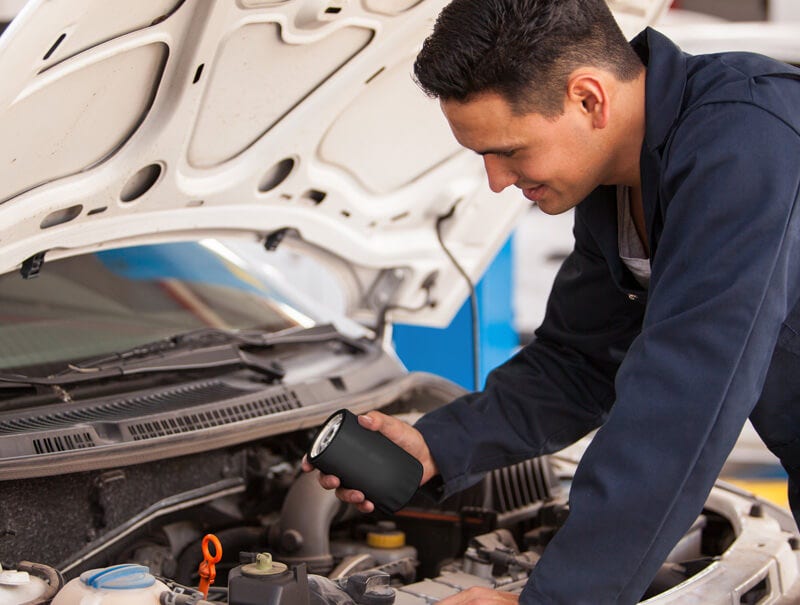HOW TO INCREASE THE SALES OF CABIN FILTERS
We have prepared four simple tips which you can use when talking to customers who underestimate the importance of cabin filters. Find out how to address the most common arguments of sceptics and effectively communicate the need for regular cabin-filter replacement!

- Remind customers about the need for regular cabin-filter replacement, and enlighten them when you hear comments which downplay its role.
“I did not have a cabin filter in my first car, and yet I'm still alive" – such a dismissive comment is what you might hear as a response when you suggest that the time for replacing the cabin filter has come. In such cases, you should advise the customer that the awareness of threats has changed significantly over the years. A filter which is not replaced regularly has an undeniable negative effect on your health. Contaminated air entering the passenger cabin through the ventilation or air-conditioning system can cause- breathing difficulties
- fatigue, hay fever, or lacrimation
- Asthma, or chronic lung disease.
Does air pollution pose a serious threat?
In order to answer this question, one should refer to the official data from the European Environment Agency, according to which more than 460,000 people in Europe die prematurely each year due to air pollution alone. The problem of excessively polluted air affects 80% of the residents of urban areas in Europe At the same time, it must be emphasised that the exhaust-contaminated air on the roads, which enters the vehicle through the ventilation or the air-conditioning system, is much more heavily polluted than the air in areas far away from the road.
- The sight of a worn-out cabin filter makes you think!
The contaminants which you can see on a worn-out cabin filter could have entered your respiratory system and could have become a cause of asthma or chronic lung disease. Showing a worn-out cabin filter to a customers can help them understand that, and can affect their purchase decision.
It needs pointing out that the contaminant particles retained by a cabin filter can be up to 7 times smaller than the diameter of a human hair. Thus, a worn-out filter is home to millions of particles which potentially could have entered the passengers' respiratory systems.
- Describe the advantages of activated carbon filters over the regular ones.
If your customer is hesitating over whether to choose a standard filter or an activated-carbon filter, you should recommend the latter type. The activated carbon located between the layers of the filter’s non-woven fabric absorbs odours and harmful gaseous substances such as sulphur oxides.
An interesting fact: activated carbon is obtained from coconut shells which have been charred to 800°C. The surface area of one gramme of activated carbon is up to 900m².
- Use the strong argument relating to the PROTECT+ technology built into all FILTRON cabin filters.
All FILTRON cabin filters feature the PROTECT+ technology, which blocks allergens, and prevents the growth of bacteria and mould on the filters. The effectiveness of the solution has been confirmed by laboratory tests at the MPA Institute in Bremen. The technology is based on a microparticle coating, visible under a microscope, which attracts and then breaks down microorganism cells. As allergens are retained, and the growth of bacteria and mould on the filter is prevented, the risk of allergic reactions is reduced, and your travel comfort is improved.
An interesting fact: according to the World Health Organisation, allergic reactions are number three on the list of the most-common chronic diseases. It is estimated that approximately 25% of people in Europe have allergy symptoms. By choosing a PROTECT+ filter, you can protect yourself and your customers from acute allergic reactions.
---
The FILTRON range holds more than 2700 products, and covers 97% of the European passenger-car market. Mechanics appreciate the high quality of the FILTRON-brand filters. Every year, more than 36 million FILTRON filters find their way to mechanics from all the European countries.


